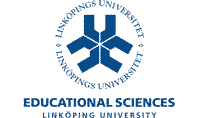
|
Visa svensk kursplan |
|
COURSE CATEGORY Fristående kurs MAIN FIELD OF STUDY SUBJECT AREA |
COURSE CODE | 926G04 |
- be able to apply scientific language use, orally and in writing, on current problem areas and describe relations between science and society and what these relations mean for learning within natural science
- be able to account for the importance of location and learning, as major parts of the course are located in the field
- be able to account for chemical/physical analytical methods and use these to analyse and characterise substances acquired from different environments.
- be able to account for plant systematics from an ethnobiological perspective
- have developed subject-theoretical and didactic knowledge in order to process and manage scientific teaching material for teaching on different levels.
The first part comprising 9 HE credits. is directed towards what sampling, analysis and interpretation of the results mean for the communication of knowledge on a scholarly basis and in public debates. The student should individually be able to formulate a number of issues, based on these issues carry out suitable samplings, account for which tools are appropriate for analysis, and orally and in writing account for certainties and uncertainties in the results and present the whole working process based on both a scientific practise and a public debate. The knowledge gained is then used to develop didactic knowledge of the importance of knowledge of the working process for creating meaningfulness in learning, and for creating authentic learning environments with scientific contents.
The second part comprising 6 HE credits. covers work in different natural environments, both exploited and undisturbed, with connections to social progress and sustainable resource utilisation. Plant systematics and ethnobiology are in focus along with biological diversity. In the course, the ability to frame the material in different contexts and its importance for learning are emphasised.
Students failing an exam covering either the entire course or part of the course two times are entitled to have a new examiner appointed for the reexamination.
Students who have passed an examination may not retake it in order to improve their grades.
60 HE credits with a specialisation in natural science, or equivalent.
The course is carried out in such a way that both men´s and women´s experience and knowledge is made visible and developed.
|
||||||||||||||||||||||||||||||||||||||||||||||||||||||||||||||||||||||||||||||